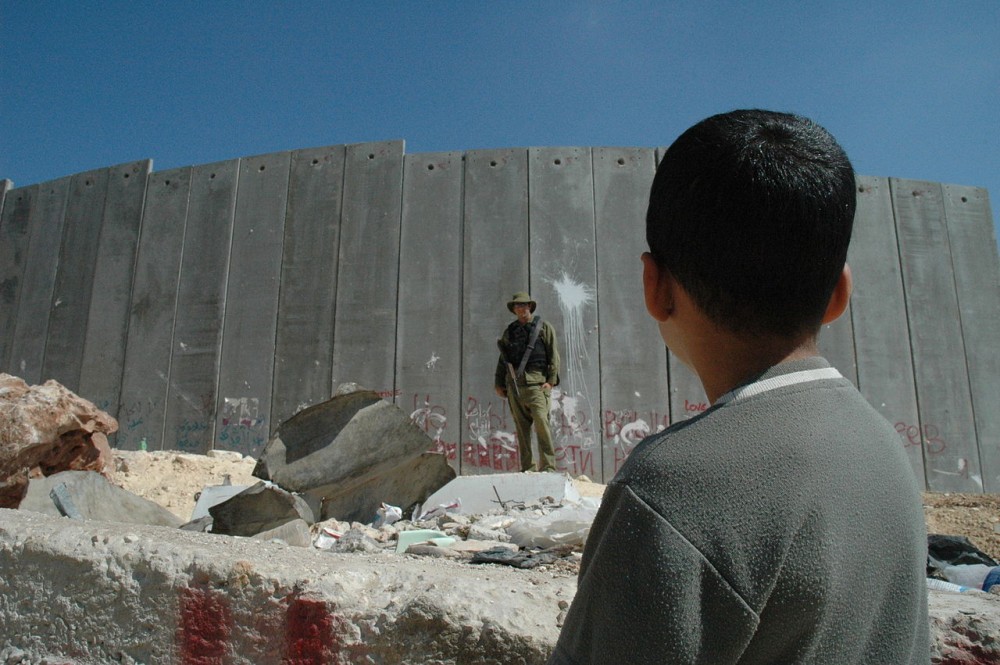A Palestinian boy, an Israeli soldier, and my American sons
The stories we tell can do real damage. Or they can heal.

Outside a café in al-Am’ari refugee camp in the city of al-Bireh on the Palestinian West Bank, where adults sip Turkish coffee and smoke a hookah, a Palestinian boy sits holding a toy machine gun. Looking carefully through its sight, the boy aims at my head and pulls the trigger. I am not scared. This boy is about nine years old, and the gun is a toy.
But when I notice the posters of dead teenage boys on the wall behind him, martyrs for Palestinian causes who are carrying real guns, I start to feel nauseous. The boy is only a few years younger than the teenage faces on the wall. I watch him wiggle and laugh outside the café, and I imagine a faded print of this boy’s face staring down at me from these walls. It hurts to know that a child so young is already rehearsing the end of his story.
As I leave the refugee camp, I think about my own three sons. I remember their toothy grins, their disheveled brown hair, their skinny arms around my neck, and I wonder how I would feel if they were shot and I was left with only a poster. My muscles tense as I also remember my boys in the backyard pointing their sticks like guns, filling their pockets with sharp stones. They don’t have toy guns, but when they reach into their pockets, lay their stones out on the grass, and hold their sticks up, they remind me of tiny soldiers standing at attention, ready to fire the minute they perceive a threat.





